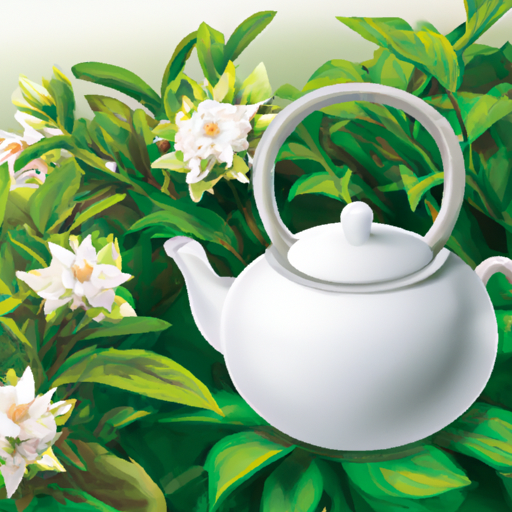I have always been intrigued by the effectiveness of natural remedies in enhancing our well-being. One remedy that has become increasingly popular is turmeric tea, celebrated for its anti-inflammatory properties.
Inflammation is a normal bodily response to injury or infection, but when it becomes chronic, it can lead to a range of health problems, including arthritis, heart disease, and even cancer.
Research has shown that turmeric contains an active ingredient called curcumin that can help reduce inflammation throughout the body. As someone who struggles with joint pain and other inflammation-related issues, I was curious about how often I should be drinking turmeric tea to reap these benefits.
Through my research, I discovered some fascinating insights into the science behind turmeric’s anti-inflammatory effects and factors to consider when incorporating this beverage into my daily routine. In this article, I will share what I have learned about how often you should drink turmeric tea for inflammation prevention and management based on scientific evidence and practical tips.
Key Takeaways
- Drinking at least one cup of turmeric tea per day is recommended for its anti-inflammatory benefits.
- Timing and consistency are important when consuming turmeric tea for inflammation, such as taking it with meals that contain healthy fats to improve absorption.
- Bioavailability of curcumin in turmeric tea increases when combined with black pepper or ginger.
- Consulting with a healthcare professional is recommended before starting any new supplement or herbal remedy, including turmeric tea.
The Basics of Inflammation and Its Impact on Health
I love drinking turmeric tea because it has anti-inflammatory properties that can help reduce inflammation in the body.
In addition to its anti-inflammatory benefits, there are also other potential health benefits associated with drinking turmeric tea, such as improved brain function and a reduced risk of heart disease.
I try to drink at least one cup of turmeric tea per day to reap these health benefits.
Anti-Inflammatory Properties
To reap the benefits of turmeric’s anti-inflammatory properties, you should consider incorporating turmeric tea into your daily routine. Turmeric contains a compound called curcumin which has been shown to have potent anti-inflammatory effects.
Research suggests that regular consumption of curcumin may help reduce inflammation in the body, which is linked to a range of chronic health conditions such as arthritis, heart disease, and cancer. If you’re looking to add turmeric tea to your diet for its anti-inflammatory benefits, it’s recommended that you consume at least one cup per day.
To make turmeric tea, simply boil water and add fresh or ground turmeric root to it. You can also add other ingredients like ginger or honey for added flavor and health benefits. However, be sure not to exceed the recommended dosage of 1-3 grams per day as excessive consumption may cause digestive issues.
Other potential health benefits of turmeric will be discussed in the next section.
Other Potential Health Benefits
Discover the potential health benefits of turmeric beyond its anti-inflammatory properties by incorporating this spice into your diet. Turmeric tea is a great way to do so, and it offers several other health benefits as well. By making turmeric tea, you can easily incorporate this spice into your daily routine and enjoy all the advantages it has to offer.
The table below outlines the ingredients needed and brewing methods for making turmeric tea, as well as some of the potential health benefits associated with drinking it regularly. Turmeric tea is known for promoting healthy skin, aiding digestion, and improving overall wellness. By adding this simple beverage to your daily routine, you may be able to experience these benefits firsthand. Now let’s explore the science behind turmeric’s anti-inflammatory effects.
The Science Behind Turmeric’s Anti-Inflammatory Effects
By drinking turmeric tea regularly, I’ll be arming my body with a powerful weapon against inflammation. Turmeric contains compounds that act like firefighters rushing to put out the flames of inflammation.
Here’s what I’ve learned about the science behind turmeric’s anti-inflammatory effects:
- Turmeric’s bioavailability is low, meaning that it’s not easily absorbed by the body.
- However, when combined with black pepper or ginger, turmeric’s bioavailability increases significantly.
- Clinical studies have shown that curcumin, a compound found in turmeric, has potent anti-inflammatory effects.
- These effects may be especially helpful for those with chronic conditions such as arthritis.
Incorporating these facts into my daily routine can help me reap the benefits of turmeric tea in reducing inflammation. As I continue to learn about this natural remedy, I’m excited to explore other factors to consider when drinking turmeric tea and how they can impact its effectiveness.
Factors to Consider When Drinking Turmeric Tea
Let’s take a look at some important factors that can affect the effectiveness of turmeric tea in combating inflammation. One crucial aspect to consider is the dosage of turmeric used in the tea. According to studies, a daily dose of 500-2,000mg of curcumin, the active compound in turmeric responsible for its anti-inflammatory effects, is recommended for optimal therapeutic benefits. Thus, it is essential to ensure that your homemade or store-bought turmeric tea contains an adequate amount of curcumin.
Another factor to keep in mind when consuming turmeric tea for inflammation is timing. Consuming the drink at specific times may enhance its absorption and efficacy. For instance, taking turmeric supplements with meals that contain healthy fats can improve absorption since curcumin is fat-soluble and requires lipids for transport into cells. Additionally, drinking turmeric tea before bedtime may be beneficial since inflammation tends to worsen during sleep due to reduced antioxidant activity. By incorporating these factors into your daily routine, you can maximize the potential anti-inflammatory benefits of turmeric tea.
Now let’s transition into how often you should consume this potent drink for general inflammation prevention without missing out on its healthful properties!
How Often to Drink Turmeric Tea for General Inflammation Prevention
Now that we’ve discussed the important factors to consider when drinking turmeric tea, let’s talk about how often you should drink it for general inflammation prevention. Turmeric is a natural anti-inflammatory agent and can be incorporated into your daily routine to promote overall health.
Here are some things to keep in mind when determining your turmeric dosage and timing:
-
Start with a small amount and gradually increase. Too much turmeric can cause gastrointestinal issues.
-
Aim for 500-2000 mg of curcumin (the active ingredient in turmeric) per day.
-
Drink turmeric tea with meals to enhance absorption.
-
Consistency is key – make it a part of your daily routine for long term effects.
Incorporating turmeric tea into your daily routine can have numerous benefits, from reducing inflammation to boosting immunity. However, it’s important to remember that everyone’s body reacts differently and consulting with a healthcare professional is always recommended if you have specific concerns or medical conditions.
Moving forward, let’s discuss how drinking turmeric tea can benefit specific health concerns such as arthritis and digestive issues.
Drinking Turmeric Tea for Specific Health Concerns
If you struggle with arthritis or digestive issues, adding turmeric tea to your daily routine could be the key to unlocking relief and improving your overall health. Turmeric has been used for centuries in Ayurvedic medicine for its anti-inflammatory properties.
More recent research has shown promising results in reducing inflammation and pain in conditions like rheumatoid arthritis and inflammatory bowel disease. When it comes to turmeric tea dosage for specific conditions, there’s no one-size-fits-all answer.
It’s best to consult with a healthcare professional before starting any new supplement or herbal remedy, especially if you’re on medication or have underlying health conditions. However, a general guideline is 1-3 teaspoons of ground turmeric per cup of hot water, steeped for 5-10 minutes.
Start with a lower amount and gradually increase as tolerated. Keep in mind that curcumin, the active ingredient in turmeric responsible for its health benefits, is poorly absorbed by the body on its own but can be enhanced when consumed with black pepper or healthy fats like coconut oil or avocado.
Incorporating turmeric tea into your daily routine may help alleviate symptoms of inflammation-related health conditions. But combining it with other anti-inflammatory foods and supplements can maximize its benefits even further – let’s explore how.
Combining Turmeric with Other Anti-Inflammatory Foods and Supplements
To get the most out of turmeric’s anti-inflammatory properties, I often combine it with other foods and supplements that have similar benefits. Some great options include ginger, garlic, cinnamon, and black pepper. These ingredients not only enhance the flavor of turmeric tea but also boost its health benefits.
One recipe variation I enjoy is adding a teaspoon of honey for sweetness and extra anti-inflammatory properties. It’s important to note that while turmeric is generally safe for consumption in moderate amounts, it can interact with certain medications or cause gastrointestinal issues if consumed in excess. Optimal dosage varies depending on factors such as age and health conditions, so it’s best to consult with a healthcare provider before incorporating turmeric into your daily routine.
With these precautions in mind, combining turmeric with other anti-inflammatory foods and supplements can be a simple yet effective way to support overall wellness and reduce inflammation naturally.
Other Ways to Reduce Inflammation Naturally
I want to talk about some other ways that I’ve found helpful in reducing inflammation naturally.
First, exercise has been shown to have anti-inflammatory benefits and can help reduce chronic inflammation.
Second, managing stress through techniques like meditation or deep breathing can also be effective in reducing inflammation.
Finally, getting enough sleep is crucial for overall health and has been linked to decreased levels of inflammation in the body.
Incorporating these practices into my routine has helped me manage inflammation and improve my overall well-being.
Exercise
Regular exercise can be a great complement to drinking turmeric tea for reducing inflammation and improving overall health. Not only does exercise provide numerous benefits on its own, but it also helps activate the anti-inflammatory effects of curcumin, the active ingredient in turmeric.
Here are some of the ways that exercising regularly can help reduce inflammation:
- Benefits of exercise:
- Releases endorphins: Exercise releases natural chemicals in your brain called endorphins, which can reduce pain and improve mood.
- Improves heart health: Regular physical activity can lower blood pressure and cholesterol levels, reducing your risk for heart disease.
Best time to exercise:
- Morning: Exercising in the morning can help you start your day off with energy and focus.
- Evening: Exercising in the evening can help you wind down from a busy day and promote better sleep.
Incorporating regular exercise into your routine along with drinking turmeric tea is a great way to combat inflammation naturally. As we move on to discussing stress management techniques, keep in mind that regular physical activity can also be an effective way to manage stress levels.
Stress Management
Now that we’ve discussed the importance of exercise for reducing inflammation, let’s move on to stress management. It’s no secret that stress can have a negative impact on our physical health, including causing inflammation. That’s why it’s important to prioritize stress relief and incorporate relaxation techniques into our daily routine.
There are many different ways to manage stress, but some effective techniques include meditation, deep breathing exercises, yoga, and spending time in nature. To help you get started with implementing these techniques into your routine, I’ve created a table below outlining some simple steps you can take for each technique.
| Relaxation Technique | Steps |
|---|---|
| Meditation | Find a quiet space and sit comfortably. Focus on your breath and try to clear your mind of any thoughts or distractions. Start with just a few minutes at a time and gradually increase as you become more comfortable. |
| Deep breathing exercises | Sit or lie down in a comfortable position. Take slow, deep breaths through your nose and exhale through your mouth. Focus on filling up your lungs completely with each inhale and releasing all the air with each exhale. Repeat for several minutes. |
| Yoga | Attend a yoga class or find an online tutorial to follow along at home. Make sure to listen to your body and only do what feels comfortable for you. Remember that yoga is about finding balance between strength and flexibility, not pushing yourself too hard. |
| Spending time in nature | Go for a walk outside or spend time gardening or doing other outdoor activities that bring you joy. Being in nature has been shown to reduce stress levels and improve overall well-being. |
Incorporating these techniques into your routine can help reduce inflammation by managing stress levels effectively. Now let’s move onto the next section about sleep hygiene!
Sleep
To improve your sleep, try establishing a consistent bedtime routine that includes winding down with calming activities such as reading or taking a warm bath. It’s also important to create a sleep-conducive environment by keeping your bedroom cool, dark, and quiet.
Additionally, here are some tips to help you get better quality sleep:
- Avoid caffeine and alcohol before bedtime
- Exercise regularly but not too close to bedtime
- Limit screen time before bed
It’s worth noting that there are no specific dosage recommendations for turmeric tea when it comes to improving sleep quality. However, some studies have suggested that the anti-inflammatory properties of turmeric may help reduce symptoms of insomnia and other sleep disorders.
In the next section, we’ll explore some turmeric tea recipes and preparation tips to help you incorporate this healthy beverage into your routine.
Turmeric Tea Recipes and Preparation Tips
For a flavorful twist, try adding ginger and honey to your turmeric tea recipe. Not only do these ingredients enhance the taste, but they also provide additional health benefits. Ginger has anti-inflammatory properties similar to turmeric and can aid in digestion. Honey is a natural sweetener that contains antioxidants and has been shown to have antibacterial properties.
When preparing your turmeric tea, it’s important to note that adding black pepper can increase the absorption of curcumin, the active ingredient in turmeric responsible for its anti-inflammatory effects. It’s also best to drink turmeric tea between meals to avoid interfering with nutrient absorption from food. Below is a table outlining some easy-to-follow recipes for making delicious and nutritious turmeric tea at home:
| Recipe | Ingredients |
|---|---|
| Basic Turmeric Tea | 1 tsp ground turmeric 2 cups water Honey or lemon juice (optional) |
| Golden Milk Tea | 1 cup unsweetened almond milk 1/2 tsp ground turmeric 1/4 tsp cinnamon Pinch of black pepper Honey or maple syrup (optional) |
| Spiced Turmeric Tea | 1 tsp ground turmeric 1/2 tsp ground ginger Pinch of black pepper 2 cups water Honey or lemon juice (optional) |
| Turmeric Chai Tea | 2 cups water 3 black tea bags 3 cardamom pods, crushed 1 cinnamon stick 1-inch piece fresh ginger, sliced 1/4 tsp ground nutmeg Powdered cloves (to taste) Milk or non-dairy milk substitute (optional) |
Incorporating these tasty recipes into your routine can not only help reduce inflammation but also provide you with numerous other health benefits. So why not give them a try?
Frequently Asked Questions
Can turmeric tea be used as a substitute for medication in treating inflammation?
Turmeric tea can be effective in reducing inflammation, but it should not be used as a substitute for medication without consulting a healthcare provider. Its efficacy and limitations vary depending on the individual.
Are there any side effects of drinking turmeric tea regularly?
Turmeric tea may cause gastrointestinal issues and interact with certain medications. Overconsumption risks include liver damage and blood thinning. Consult a healthcare provider before regularly drinking turmeric tea as a remedy for inflammation.
Can turmeric tea help with weight loss in addition to reducing inflammation?
I’ve found that drinking turmeric tea regularly has helped me with weight loss. Studies suggest that turmeric can boost metabolism and reduce inflammation, making it a great addition to a healthy diet and exercise routine.
How long does it take for turmeric tea to start showing its anti-inflammatory effects?
To maximize the anti-inflammatory benefits of turmeric tea, it’s important to use the right dosage and preparation method. It can take a few weeks to see results, but be aware of potential risks such as interactions with medications.
Is it safe to consume turmeric tea during pregnancy or while breastfeeding?
Wow, drinking turmeric tea is like having a warm hug from the inside! Safety concerns during pregnancy and breastfeeding are valid, but moderate consumption is generally safe. Consult with your doctor for dosage recommendations.
Conclusion
Well, there you have it folks – the power of turmeric tea for inflammation! As someone who’s struggled with chronic inflammation in the past, I can attest to the benefits of incorporating this golden spice into my daily routine.
But as with any natural remedy, it’s important to approach it mindfully and with realistic expectations. Remember that turmeric isn’t a magic cure-all – while it may provide some relief from inflammation, it’s unlikely to completely eradicate the issue on its own.
However, when combined with other healthy habits like regular exercise and a balanced diet rich in anti-inflammatory foods, turmeric tea can be an excellent tool in your arsenal against inflammation. So why not give it a try?
After all, as they say, a little bit of turmeric can go a long way towards keeping your body happy and healthy!










